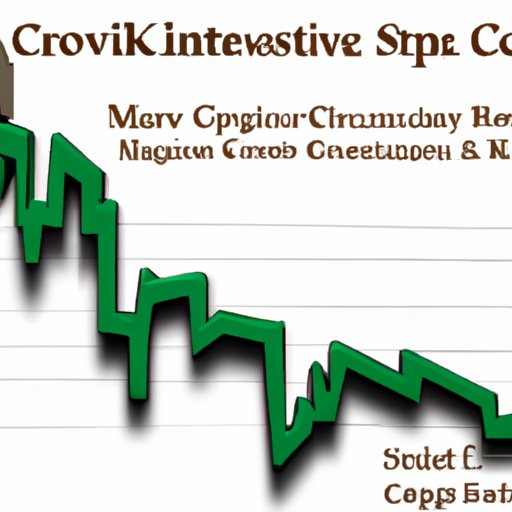Introduction
The 2008 financial crisis is one of the most devastating economic events in modern history. It began in the United States in 2007 and quickly spread worldwide, leading to a global recession that lasted for several years. The crisis was caused by a combination of factors, including greed and risk-taking on the part of banks and other financial institutions, inadequate regulation, irresponsible lending practices, and the growth of the subprime mortgage market. In this article, we will explore these factors in more detail.
Analysis of Causes
Greed and risk-taking were major factors in the 2008 financial crisis. Banks and other financial institutions took on too much risk in their pursuit of profits, often without regard for the potential consequences. This led to the creation of complex financial instruments such as derivatives, which had the potential to amplify losses if things went wrong. As former Federal Reserve Chairman Ben Bernanke noted, “What started as a subprime mortgage crisis turned into a full-blown financial crisis because of the excessive leverage and lack of transparency of many financial institutions.”
Poor regulation was another major factor in the crisis. In the years leading up to the crisis, regulatory agencies such as the Securities and Exchange Commission (SEC) failed to take adequate steps to protect consumers. This allowed banks and other financial institutions to engage in risky behavior with little oversight or accountability. As former SEC Chairman Christopher Cox noted, “The SEC failed to fully appreciate the extent of risk posed by the large and growing number of structured products and failed to take steps necessary to protect investors from those risks.”
Irresponsible lending practices also played a role in the 2008 financial crisis. Banks and other lenders offered mortgages with low introductory rates, allowing borrowers to take on more debt than they could afford. These loans often had hidden fees and penalties that made them difficult for borrowers to understand. As a result, many borrowers found themselves unable to make payments when the rates reset, leading to a wave of defaults that triggered the financial crisis.
Derivatives trading was another key factor in the crisis. Derivatives are complex financial instruments whose value is derived from an underlying asset. During the lead-up to the crisis, banks and other financial institutions used derivatives to increase their exposure to risky assets without having to hold the underlying assets on their balance sheets. This practice added to the instability of the financial system and exacerbated the effects of the crisis.
The subprime mortgage market was also a major factor in the crisis. Subprime mortgages are loans given to borrowers who have less-than-perfect credit histories. Many of these borrowers were unable to make their payments when the housing market crashed, leading to a wave of defaults and foreclosures that further destabilized the financial system.
Finally, globalization was a major factor in the crisis. As the world economy became increasingly interconnected, it became easier for problems in one country to spread to others. This helped trigger the global recession that followed the crisis, as countries around the world struggled with the fallout of the crisis.
Conclusion
The 2008 financial crisis was caused by a combination of factors, including greed and risk-taking on the part of banks and other financial institutions, inadequate regulation, irresponsible lending practices, derivatives trading, and the growth of the subprime mortgage market. In the wake of the crisis, governments and regulators have taken steps to address these issues, but there is still much work to be done to ensure that such a crisis does not happen again.
In conclusion, the 2008 financial crisis was a devastating event that highlighted the need for better oversight and regulation of the financial system. By understanding its causes, we can take steps to protect ourselves from similar crises in the future.
(Note: Is this article not meeting your expectations? Do you have knowledge or insights to share? Unlock new opportunities and expand your reach by joining our authors team. Click Registration to join us and share your expertise with our readers.)
